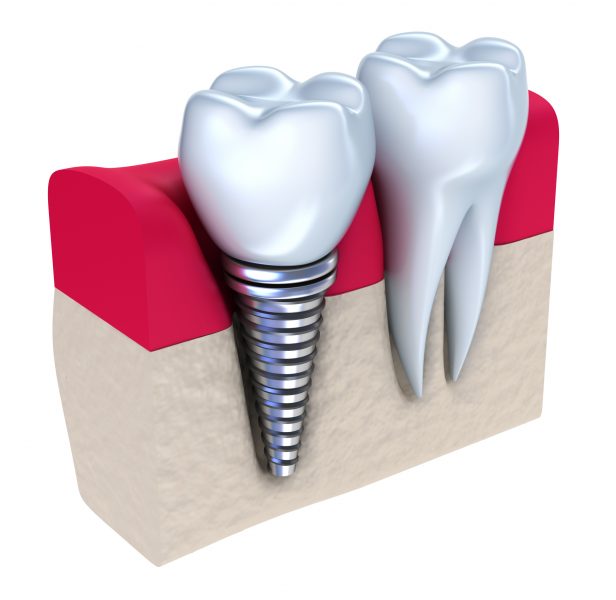Both women and men are vulnerable to osteoporosis. This ailment creates a decline in bone tissue. Fragile and brittle bones can break with ease, especially as you grow older. You may also have dental issues where you require implants for speaking, eating and self-esteem purposes. If you suffer from osteoporosis, dealing with dental implants might be a concern on your mind. Learn more about the relationship between osteoporosis and dental implants so that you can have an educated discussion with your dentist.
Current Implantations
If you have dental implants right now, an osteoporosis diagnosis isn’t a serious concern. Your implants should remain in place without major complications. However, you should discuss your diagnosis with your dental professional. He or she will prioritize analysis of your implants during each appointment.
Current studies are inconclusive when it comes to osteoporosis impacting the jawbone. It’s a fact that the jaw is bone and will eventually have some brittleness associated with its structure. However, it’s not nearly as impacted as other bones, and you can expect your current implants to be healthy for many years to come.
Considering New Dental Implants
Osteoporosis patients may be concerned about new installations. If you’ve never had dental implants before, the idea of altering the jawbone with screws and other items seems daunting with a bone-loss ailment. However, you can have implants with your current diagnosis.
Because the jawbone isn’t affected by the osteoporosis as much as other bone structures, your dentist can typically install the implants without problems. He or she might work with your primary doctor in order to see and understand the extent of the osteoporosis. If you have an early diagnosis, the implants may not have any complications.
Complicating Factors
If you’re taking medications for your osteoporosis, such as bisphosphonates, their impact on your bones might complicate an implant surgery. Speak to your dentist about the medications that you’re currently taking. Osteoporosis medication tends to reduce your healing abilities, which can create a long recovery period after an implantation.
Be transparent about other issues too, such as a diabetic diagnosis. All of these ailments must be considered and calculated into an implant surgery. The procedure’s success depends on good communication.
Lifestyle Alterations
Living with osteoporosis and dental implants means that you should take care of yourself to improve your bone’s strength. Be sure to include calcium and vitamin D in your daily meals, such as through dairy products. Strengthening the bones will ward off progressive osteoporosis while protecting your smile.
As an added level of protection, consume hard foods with caution. Cut up your apple and eat corn off of the cob. Your implants are certainly strong, but their jawbone support may not be as strong as other patients. Simply eat with attention to your chewing behaviors to preserve your smile.
Imaging Innovations
Today’s medical innovations make it possible for osteoporosis patients to have an implant with very little fanfare. Your dentist will probably use an imaging system in order to see your jaw’s bone density. This information tells the professional if an implant must be installed in the traditional manner or with some adjustments.
From the patient’s perspective, there’s no difference during the procedure. The professional may take a few extra steps to secure the implant down on the strongest part of the jawbone.
For professional results in West Palm Beach, Florida, visit the Good Samaritan Dental Implant Institute today.


